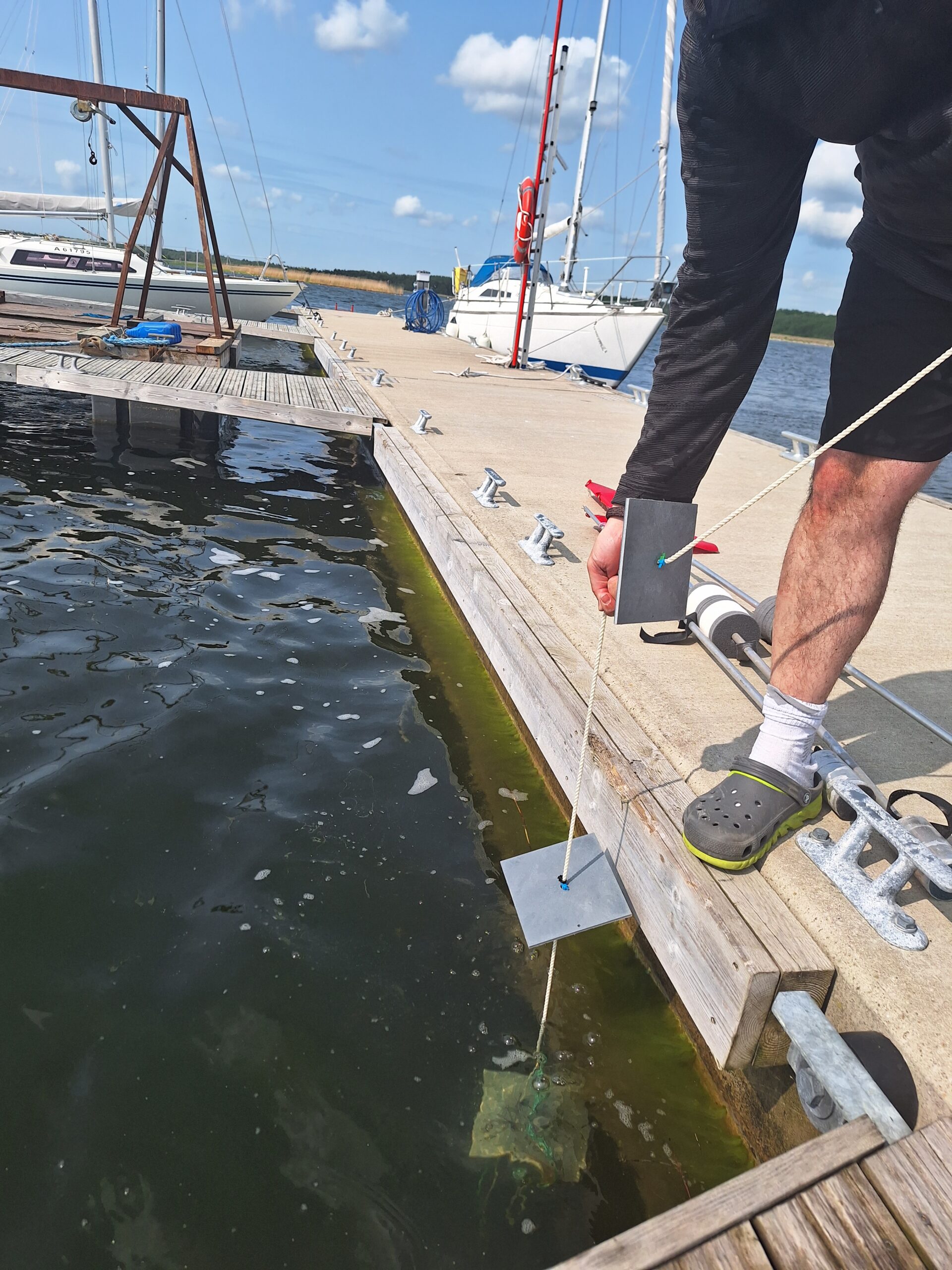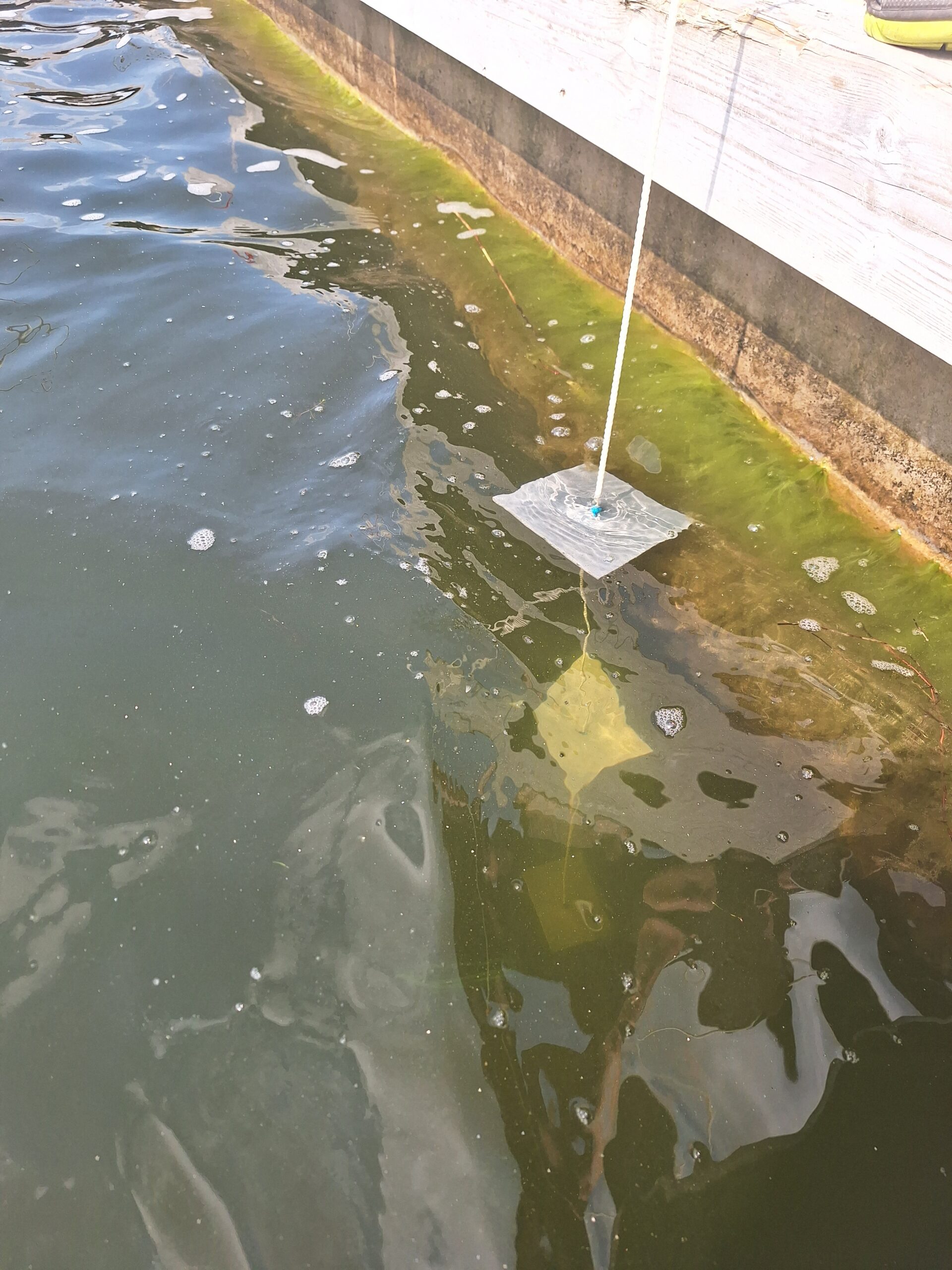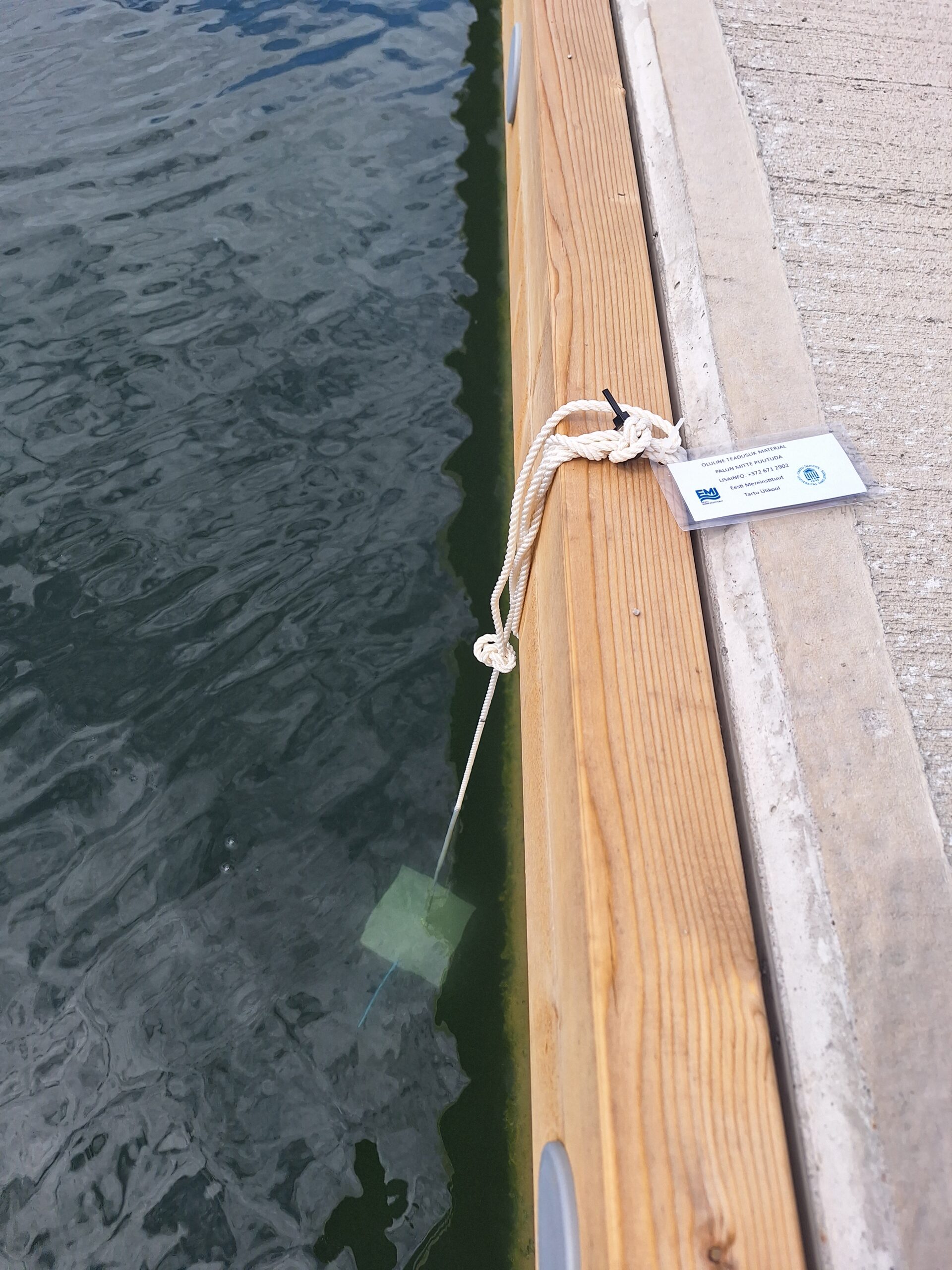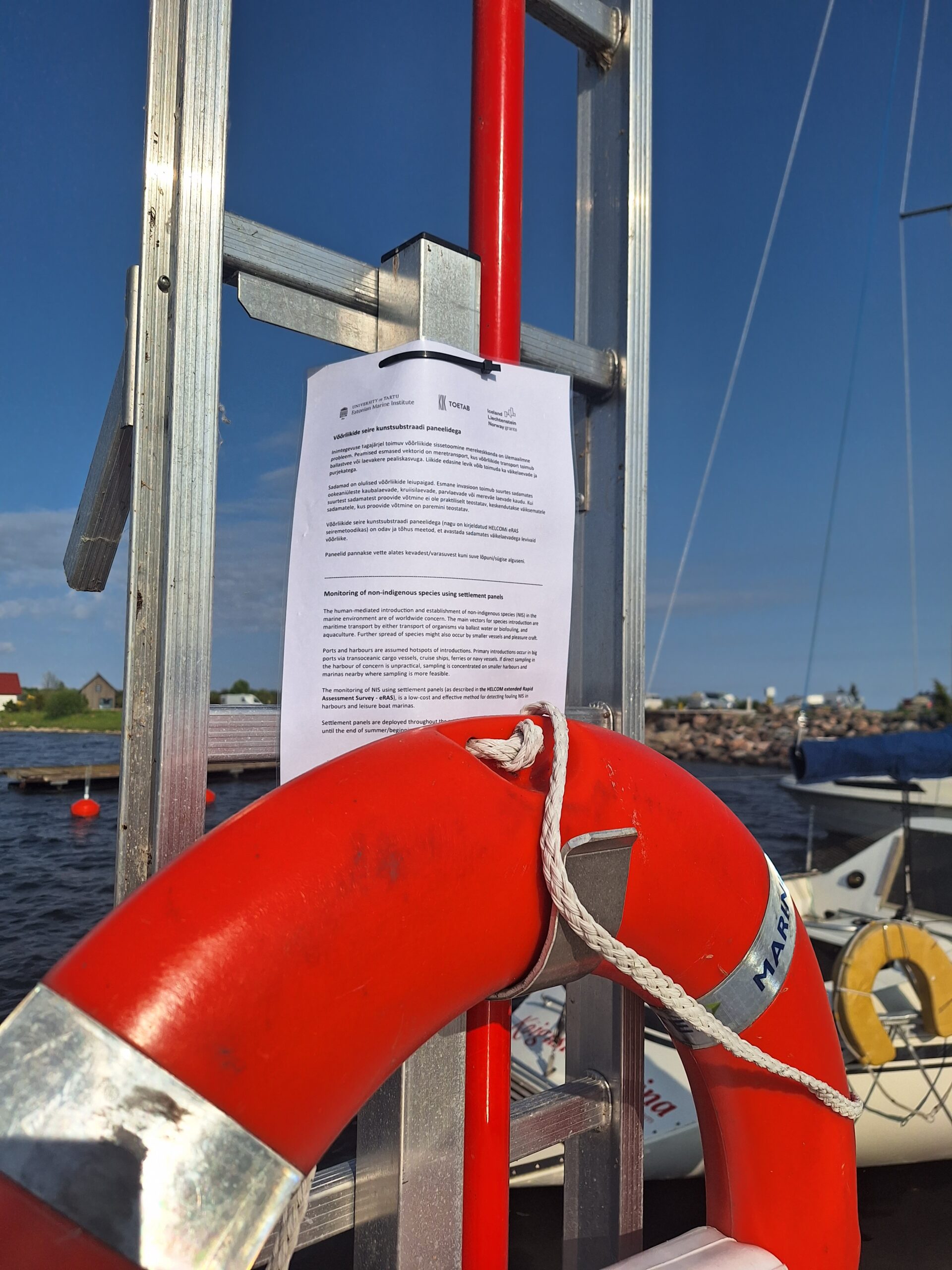Impacts of invasive alien species and climate change on marine ecosystems in Estonia
eDNA and small harbour NIS monitoring activities
Development of the eDNA method for biological monitoring in ports
eDNA-based invasive species monitoring is used to determine the presence of species-specific marker genes in seawater samples. The presence of a species-specific marker will be determined by quantification PCR analysis to detect the presence of ~100 nucleotide sequences. Water samples will be collected from different areas of the risk area. As a result of the project, a method will be developed that can be applied to new alien species risk areas in Estonia. The new information will make a significant contribution to the global development of alien species monitoring.
In 2022, eDNA samples were collected and are currently being analysed.
In 2023, the methodology for the detection of alien species on growth plates will be tested in at least two small Estonian harbours (e.g. Kõiguste harbour). The methodology developed by HELCOM will be tested in the Estonian coastal waters.
Monitoring of non-indigenous species using settlement panels
The human-mediated introduction and establishment of non-indigenous species (NIS) in the marine environment are of worldwide concern. The main vectors for species introduction are maritime transport by either transport of organisms via ballast water or biofouling, and aquaculture. Further spread of species might also occur by smaller vessels and pleasure craft.
Ports and harbours are assumed hotspots of introductions. Primary introductions occur in big ports via transoceanic cargo vessels, cruise ships, ferries or navy vessels. If direct sampling in the harbour of concern is unpractical, sampling is concentrated on smaller harbours and marinas nearby where sampling is more feasible.
The monitoring of NIS using settlement panels (as described in the HELCOM extended Rapid Assessment Survey – eRAS), is a low-cost and effective method for detecting fouling NIS in harbours and leisure boat marinas.
Settlement panels are deployed throughout the settlement season, from spring/early summer until the end of summer/beginning of autumn.
In June 2023 Settement plates were deployed for 3-4 months in Kõiguste marina in Saaremaa and Noblessner marina in Tallinn:






